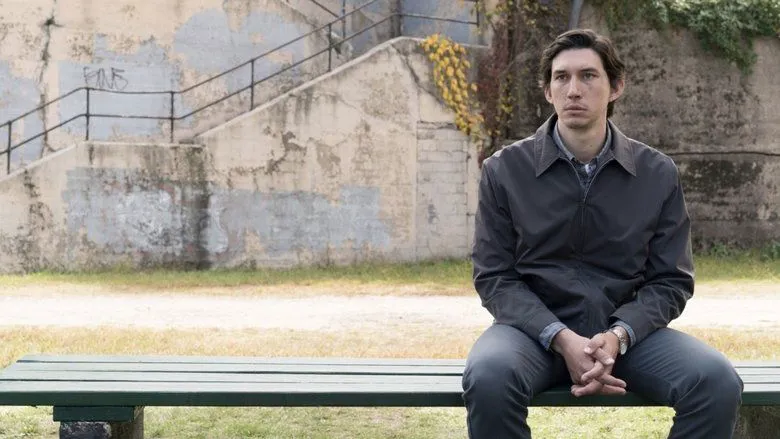Paterson: A Poetic Journey Through the Mundane
Spending two hours watching a slow-paced, provincial landscape unfold might appeal to poetry enthusiasts, but it could be a challenging experience for the average viewer.
The film “Paterson” centers around a bus driver named Paterson, living a simple life with his wife Laura and their dog. Six days a week, he follows the same routine: waking up early, going to work, driving the bus while listening to passenger conversations, having a beer at the local bar, and returning home to his whimsical wife, who constantly experiments with painting, songwriting, and baking. While this routine might drive some people crazy, Paterson finds poetic inspiration in it, discovering rhymes and meanings everywhere. He intentionally avoids modern technology, preferring to write his poems in a small notebook, carefully guarded from prying eyes. However, one day, he leaves his precious notebook on the living room table before going to the movies with his wife.

According to Jim Jarmusch, he drafted the script for “Paterson” 20 years ago but struggled to find the right poems to set the film’s tone.
Jarmusch’s Signature Style: Poetry in Motion
If any filmmaker’s work can be compared to poetry, it’s Jim Jarmusch. His meditative, profound, serious, and humorous films are considered modern classics, resonating with many through their inner music. However, not everyone appreciates Jarmusch’s work. Despite its apparent simplicity, many viewers struggle to connect with it, and some film enthusiasts avoid it altogether. But should poetry be forced upon those who don’t appreciate it?

Jarmusch doesn’t force anything. “Paterson” is both a mockery of viewers who need traditional plot structures with clear resolutions and a wink to those who appreciate the more subtle connections. He has been doing this for years; “Only Lovers Left Alive” is more than just a vampire saga, and “Dead Man” is more than just a Western. In “Paterson,” Jarmusch directly addresses those who understand, feel, and appreciate poetry.

Rhymes and Rhythms: Decoding the Film’s Poetic Language
The film is undeniably poetic, with rhymes throughout: Paterson the character and Paterson the city, the guitar and the black-and-white room, the bus ride and the commute, the colleague’s problems and the bar patron’s dramatic tears. Even twins appear as frequently as rhymes in a bad poem. However, the poetics of “Paterson” are complex and require a specific mood to fully appreciate. While there are no heartbreaking scenes or injustices, watching “Paterson” is best paired with reading Brodsky and listening to Radiohead, as the film is filled with melancholy.

A Glimmer of Hope: Finding Beauty in the Everyday
Despite its melancholic tone, “Paterson” isn’t depressing. The ending offers a glimmer of hope, encouraging the viewer with new lines from Paterson’s pen. Life goes on, the alarm clock rings, the bus runs its route, and passengers gossip, oblivious to the driver’s smile. This is Jarmusch’s signature style: his characters appear from nowhere and disappear after two hours of dialogue, like a poem that lingers in your mind but fades away like water through your fingers.

Adam Driver obtained a bus driver’s license for the role.
Critical Acclaim and Limited Appeal
Critics praised Jarmusch’s new film, with its Cannes premiere, awards, and compliments for Adam Driver’s performance. However, the enthusiasm cooled quickly, as the film received no Oscar nominations. Perhaps the Academy isn’t as poetic as Paterson’s friends and acquaintances.
“Paterson” may become a comfort film for aspiring poets seeking inspiration, a never-ending loop of a week condensed into two hours. But for many viewers, the poems about matches, waterfalls, and hearts aren’t worth the ink. It’s unfortunate that Jarmusch doesn’t try to connect with these viewers. He has distanced himself from the ordinary and retreated into his world, where the past is valued, and the world is populated by ideal bus drivers. And, ultimately, he doesn’t need an audience there.